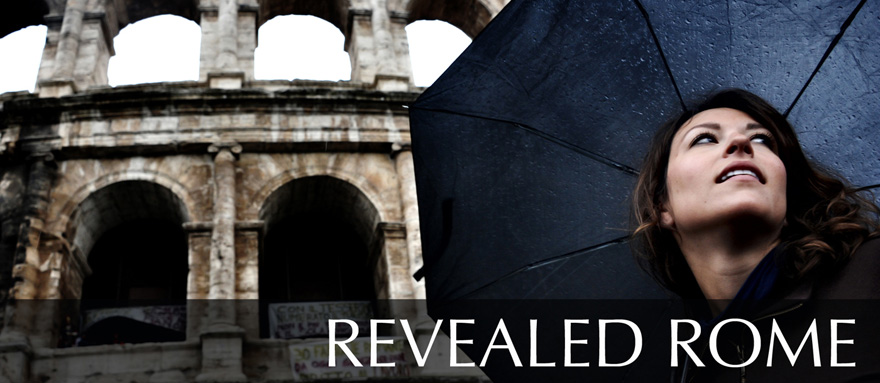Tax evasion is a huge problem in Italy. By knowing how important a fiscal receipt is, and what it looks like, here’s how tourists can help.

Everyone knows that tax evasion is one of the biggest issues facing Italy's economy. But very few tourists to Italy know that they have the power to do something about it.
And should.
That's because tax evasion in Italy doesn't just happen in accountants' offices behind closed doors. It happens every time a product, meal, or coffee is sold. Why? Because Italian stores and restaurants have a book of "fiscal receipts" issued by the government—and legally, they need to give the customer a fiscal receipt (ricevuta fiscale) for each interaction. Each time they use a ricevuta fiscale, the government knows about the purchase… and the interaction is taxed.
Without issuing that ricevuta fiscale, it's like the interaction never happened. And, therefore, it's untaxed.
And so, guess what: You hardly ever see fiscal receipts in Italy. Especially if you're a tourist.
Restaurants and stores know that tourists have no idea what a fiscal receipt looks like versus a non-fiscal receipt. They also know that tourists have a tendency to think it's "cute" when their waiter does something like, say, scribble the total on the tablecloth or a napkin. Guess what? That's not a fiscal receipt. And that's not cute. It means that your meal isn't being taxed. It's going right into the owner's pockets, tax-free.
This has been a huge issue for, well, ages. It's something everyone knows, but—until recently—that nobody publicizes. It's part of a system that many Italians mistakenly believe benefits everyone: After all, it obviously helps owners, in the short term, especially since taxes are so high in Italy. And as a customer? If you're a regular, you know that, if you don't ask for a fiscal receipt, your local restaurant or drycleaner or whatever will give you a discount. Everybody wins.
Except, of course, that they don't.
In 2009 alone, Italians evaded about 120 billion euros in taxes—that's almost four times the value of Monti's new austerity budget. If Italy were as strict in collecting taxes as the U.K. and the U.S. over the last 40 years, economists have calculated, then the country's national debt would be 80 percent of GDP, not 120 percent.
Doesn't the government know about this, you ask? Aren't they doing anything? Well, sure. There's something called the Guardia di Finanza in Italy—think the IRS with guns—whose sole job is to make sure that fiscal interactions are done legally. Occasionally, they'll get a tip on a restaurant or shop. The problem? Because Italy is what it is, the establishment usually gets a tip-off that they're coming. And so, surprise! When the Guardia check the receipts they're issuing, they're suddenly fiscal.
With Monti's new government, though, things seem to be improving. There have just been several big stings that have shown just how bad tax evasion was—and not just in the much-maligned south, but in the supposedly-so-civilized north, too. In December, 80 tax inspectors swooped in on the tony ski town of Cortina d'Ampezzo in Italy's Dolomites. In the wake of the inspection, declared profits were suddenly up 400 percent from the previous season (gee whiz, how'd that happen?). In mid-January in Rome, an inspection of 292 businesses in one day found that 52% were in violation. And last weekend, the Guardia di Finanza targeted Milan. In the days after their blitz, reported income went up by 44 percent.
So. Well and good. But government can only do so much.
Consumers have to help, too.
Italians have started calling for boycotts among establishments that aren't issuing fiscal receipts. One of the leaders of the pack is Rome's own Puntarella Rossa, who has launched the campaign "No scontrino, no party" (no receipt, no party), encouraging diners to ask for fiscal receipts every time they eat—or to boycott the restaurant. Even more effectively, the restaurants in violation are being named and shamed. Citizens took the campaign seriously this week in Bari, for example, sending photos of the receipts they received, with the restaurants' names, to both the Guardia and to La Repubblica's blog on Bari.
It's a fantastic idea, and one that needs to spread. But it can be expanded to tourists, too. Because, with as many non-Italian diners and customers as there are in Rome and the rest of Italy, everyone needs to be a part of this for it to succeed.
So, folks: When you're dining in Italy, always ask for a "ricevuta fiscale." Don't accept hand-scribbled scraps of paper as receipts, and don't accept a receipt that says, at the top, "NON FISCALE" (not fiscal). Unless, that is, you don't mind supporting Italy's tax evasion—and the huge issues it's causing for not only Italy's economy, but the worldwide economy, too.
You could even take it a step further: Snap a photo of the illegal receipt and email it, with the restaurant's name, to puntarellarossa@hotmail.it.
Need help figuring out what is and what isn't a fiscal receipt? Check out Walks of Italy's blog post on how not to get ripped off at Italian restaurants, which includes a helpful section, with photos, on what fiscal and non-fiscal receipts look like.



